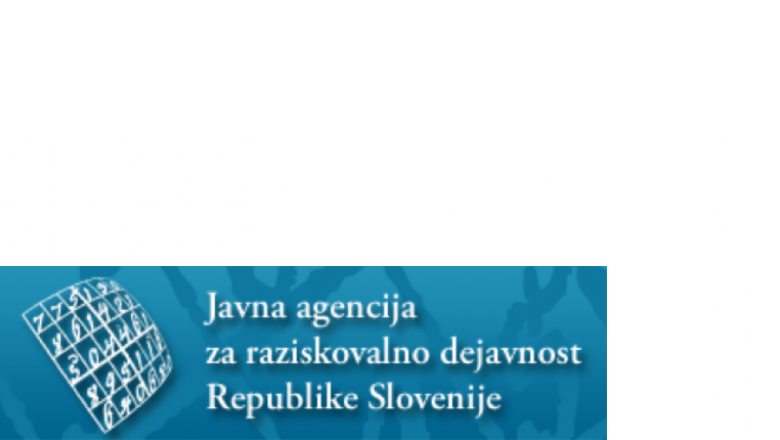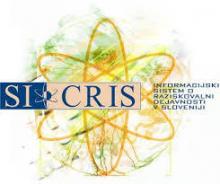

Sociolingvistična variantnost govorjene slovenščine na primeru mobilnih govorcev: Viri, metode in analiza
|
Članica UL, ki izvaja projekt |
UL Filozofska fakulteta |
|
Šifra projekta |
Z6-9371 |
|
Naziv projekta |
Sociolingvistična variantnost govorjene slovenščine na primeru mobilnih govorcev: Viri, metode in analiza |
|
Obdobje trajanja projekta |
1. 10. 2019 - 31. 10. 2023 |
|
Letni obseg |
1 FTE |
|
Vodja projekta |
Maja Bitenc |
|
Veda in področje |
Humanistične vede / Jezikoslovje |
|
Sodelujoče raziskovalne organizacije |
/ |
The aim of the project is the investigation of the authentic language practice and intralanguage variation of geographically mobile Slovene speakers, as well as the study of the related sociopsychological and social issues. The object of analysis is the language repertoire of six informants from two different regions, who commute for work to Ljubljana on a daily basis and use different strategies of speech behaviour in communication with speakers of other varieties of Slovene. The informants are adults from two different regions, Dolenjska (Lower Carniola) and Štajerska (Styria), more precisely from the town of Ribnica and the city of Maribor.
Building on the findings in her doctoral thesis, which is presented in the monograph Z jezikom na poti med Idrijskim in Ljubljano (With Language on the Way between Idrijsko and Ljubljana) and in which she explored geographically mobile informants from the Idrija region with the methodological approaches of variationist sociolinguistics, the researcher continues with the investigation of linguistic strategies in dialect contacts in the Slovene capital. Methodologically, the quantitative analysis of the informants’ language variation is combined with qualitative data from sociolinguistic interviews about the social significance of the dialect, the informants’ perception of their own language behaviour, language attitudes, the connection between language and identity, and experiences with language use. In order to test how each informant with his/her speech behaviour is perceived in different environments and to compare the informant’s own and others’ perception, she also interviews two acquaintances of each informant, one from their local area and one from Ljubljana.
In the variationist part of the study, she observes which phonological and morphological variables change the most or the least and why, she pays special attention to intra- and inter-speaker variation and potential intermediate varieties. In combination with the qualitative data from the interviews and from ethnographic observations, she examines external factors that affect informants' accommodation and seeks to find out how influential are their origin, sex, profession, social network, personal characteristics, personal experience with language use, the length of their employment in Ljubljana, informants' and others' language attitudes etc. Besides, she is interested in the dialect features that are subject to stereotypes, as well as the status and prestige of the different dialects in the local region and in Ljubljana. She observes the (in)congruence of informants' perception of their own speech variation with their actual speech production on the recordings.
A comparison of informants from three different dialect regions – Ribnica and Maribor from the proposed study as well as Idrija from her doctoral research – whose dialects have been involved in the standardisation of Slovene in different ways and to different extent, will show potential differences in the accommodation of informants with different dialects and in the related sociolinguistic issues, which will contribute to better understanding of complex interdialect relationships in the Slovene language territory.
Maja Bitenc is a postdoctoral researcher at the Department of Slovenian Studies at the Faculty of Arts of the University of Ljubljana. She studied Slovene and English at the same Faculty and spent one semester at Eberhard Karls Universität in German Tübingen as a Socrates/Erasmus exchange student. Her diploma thesis Teaching Slovene to Slovene Emigrants: Research among Pupils of the Classes of the Slovene language and Culture in Baden-Württemberg was awarded Prešeren Prize of the Faculty of Arts and the prize of Government's Office for Slovenians Abroad. After some work experience in media and education, she focused on sociolinguistics as a young researcher and assistant at the Faculty of Arts of the University of Ljubljana and received Faculty's award for the best dissertation in the field of linguistics for her dissertation Variation of Spoken Slovene in the Case of Geographically Mobile Speakers. Her research interests include variationist sociolinguistics, language attitudes, language and identity, language policy and language planning, (perceptual) dialectology, corpus linguistics and critical discourse analysis.
The researcher is employed half-time; therefore, the project lasts four years and the tasks are arranged accordingly; some phases are partly conducted simultaneously.
Phase 1: Study of relevant literature: in-depth study of dialects, relevant studies and qualitative methods for the analysis of semi-structured interviews (months 1–2)
Phase 2: Data collection: choice of informants, organization of spontaneous speech recording and conducting semi-structured interviews (months 3–8)
Phase 3: Variationist data analysis and interpretation: listening to the recordings, text selection for the analysis according to different criteria, defining domains, transcription of the selected recordings and defining variables, distributional analysis of variables according to individual informants and individual variables, presentation of results in tables and graphs (months 9–32)
Phase 4: Interview data analysis and interpretation: transcription of the interviews, analysis of relevant sociopsychological topics; evaluation and presentation of the results (months 25–44)
Phase 5: Dissemination of the results: publication of results at international conferences, publication of a paper in an impact-factor journal, awareness raising events in the local communities, included in the research (months 33–48)

Raziskovalni projekt je (so)financiran s strani Javne agencije za raziskovalno dejavnost.
